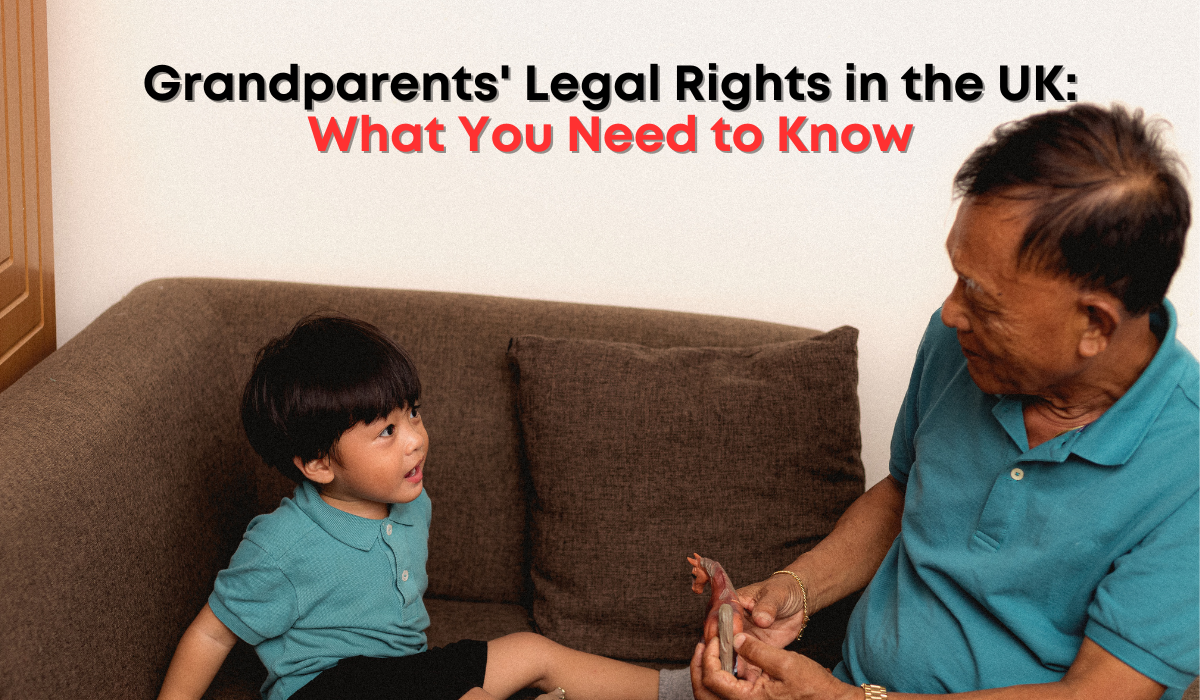The role of grandparents in family life has grown substantially in recent generations, reflecting both social and economic changes in the United Kingdom. Estimates suggest there are 14 million grandparents in the UK, and today, over 80% of children receive care from their grandparents, compared to just 33% two generations ago. Despite their vital contribution to family life, grandparents in England and Wales lack automatic legal rights concerning their grandchildren. This article examines this gap in legal protections, exploring how domestic law addresses grandparents’ rights and the implications for families navigating private, public, or international child custody disputes.
The Legal Landscape: A Surprising Lack of Automatic Rights
Under current legislation, grandparents do not have a guaranteed right to spend time with or live with their grandchildren. The Children Act 1989 (CA 1989), which governs child welfare disputes, outlines the framework for seeking Child Arrangements Orders (CAOs) to regulate where a child lives or spends time. Parents and certain other individuals, such as step-parents or those with whom the child has lived for at least three years, have an automatic right to apply for a CAO. Grandparents, however, must first seek the court’s permission.
This procedural hurdle underscores the lack of recognition for grandparents’ role in many children’s lives. Even when permission is granted, legal proceedings can be lengthy and expensive, costing private applicants upwards of £50,000 to £150,000 plus VAT and disbursements.
The Child’s Welfare is Paramount
In any legal proceedings under the CA 1989, the child’s welfare is the paramount consideration. Courts are guided by a statutory welfare checklist, considering factors such as the child’s wishes, emotional needs, and the likely impact of changes in their circumstances. Grandparents often provide a stabilizing presence in a child’s life during family disputes, and courts generally sympathize with their applications absent safeguarding concerns. However, resistance from parents or other parties can make such proceedings arduous.
The involvement of Cafcass (Children and Family Court Advisory and Support Service) or independent social workers ensures that the child’s voice is heard, either through welfare reports or, in some cases, the appointment of a Guardian under Rule 16.4 of the Family Procedure Rules.
Special Guardianship and Care Proceedings
In public law cases, such as care proceedings initiated by a local authority, grandparents frequently play a pivotal role. Courts and local authorities prefer placing children with relatives over foster care wherever possible. Special Guardianship Orders (SGOs) provide a legal mechanism for grandparents to secure long-term care for their grandchildren while preserving the child’s links to their birth parents.
Unlike private proceedings, public law cases often involve automatic party status and access to non-means-tested legal aid, easing the financial burden for grandparents. Care proceedings also operate on a tighter timeline, aiming to conclude within 26 weeks, though delays remain common post-pandemic.
International Disputes and Grandparents’ Rights
Grandparents can also find themselves embroiled in international child abduction or wrongful retention cases. Under the 1980 Hague Convention, rights of custody may include inchoate rights for grandparents if they have been acting in a parental capacity. Recent judgments, such as Re K (A Child) (Northern Ireland) [2014] UKSC 29, highlight the potential for grandparents to seek the return of a child under international law, even without formal custody rights.
For grandparents in 1980 Hague Convention signatory countries, Article 21 facilitates applications for contact. This broadens access to legal remedies, as established by cases like Valcheva v Babanarakis [2018], which emphasized the importance of maintaining intergenerational ties across borders.
Financial and Emotional Costs of Legal Battles
One consistent challenge across all proceedings is the financial and emotional toll on grandparents. While public law cases offer greater access to legal aid, private proceedings remain prohibitively expensive for many. Grandparents who have provided years of financial and emotional support to their families often face barriers when seeking to formalize their role legally.
A Call for Modern Reform
The lack of automatic rights for grandparents reflects a legal system rooted in outdated assumptions about family structures. In an era where grandparents play an increasingly significant role in childcare, the law must evolve to support their contributions. Policy discussions should consider streamlined processes for grandparents seeking contact or custody and greater financial support for those pursuing legal remedies.
Moreover, the principle of the child’s right to maintain familial relationships, including with grandparents, aligns with broader considerations of identity and well-being. A robust legal framework that acknowledges intergenerational bonds is essential to safeguarding the best interests of children.
Final Takes
The adage “it takes a village to raise a child” rings true across cultures and societies. Grandparents are often the cornerstone of that village, providing care, stability, and love. Yet, the current legal framework in England and Wales offers them little formal recognition. As family dynamics continue to shift, so too must the law. By addressing these gaps, we can ensure that children’s rights to meaningful, nurturing relationships with their grandparents are fully realized.
For those navigating these complex legal landscapes, expert advice and support are essential. Whether in private disputes, care proceedings, or international cases, grandparents deserve a clear, accessible path to protecting their bond with their grandchildren. Modern families need modern laws—and the time for reform is now.
Get in touch: For a comprehensive understanding of your options or queries on UK immigration matters, contact GigaLegal Solicitors at 02074067654 or click here to book a no-obligation consultation with an immigration expert.


